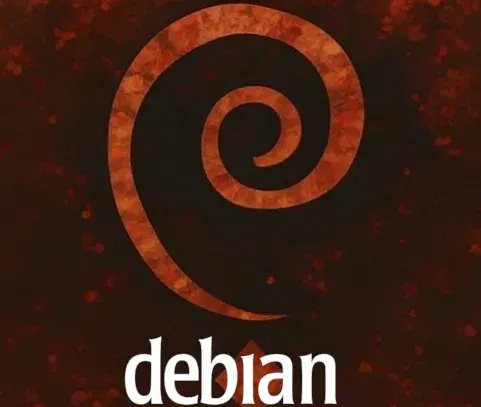So thats why whenever I try to find a package in apt, I have to iterate through thousands of simiparly named
librust-{dictionaryword}-{component}-devpackages in order to find the simplecomponentI want… Apt repos have really been trying too hard for granularity, I’m pretty sure there are more librust áckages than actual end-user program packages.Still gonna use Debian.
Is it just me, or does that seem … abrupt?
There’s time until March for the maintainers of the 3 niche architectures to organize and make rust available for them. Doesn’t sound that abrupt to me
Wasn’t there a Rust-to-C compiler that would circumvent this limitation?
For small niches, six months can be rather aprupt.
My niche can take 5 days or 5 months, depending on ADHD
Rust adds another layer of trusting the compiler isn’t backdoored. All UNIX/Linux systems use the gcc toolchain, so having it written in C would mean less dependencies for the OS.
- paraphrased from someone who seemed to know more about this stuff in this unrelated discussion yesterday
Strange times.
how many compiler back doors have we seen versus use-after-free/stack overflow attacks?
The anti-Rust crowd baffles me. Maybe C++ has rotted their brain to the point they can’t “get” the borrow checker.
My only complaint is that its syntax is an ugly mishmash. Should have copied scala or f#
More like Rust has rotted someone’s brain. “Hey, I can’t code safely, so I will use this new toy that is supposed to make me”. This line of thought is OK as long as it does not get imposed on anything I do as a programmer
Strange how your bad faith reply is still here, and with many upvotes, while my reply calling you out appears to be gone.
This is an example of how discussions like this are more appropriate for nostr, where there are no bans / post removals.
You know that bans/removals are documented right? If you don’t see your post it’s because you didn’t post it. You’re not being censored, go take your meds
Weak gaslighting attempt but if you could show me where to find it documented I would appreciate that.
If anyone is confused, feel free to ask me for proof I’m telling the truth. If I posted it here, I’m pretty sure I’d be at risk of getting banned for evading the post removal (because the proof would also lead you back to the reply chain that was removed)
Edit - maybe this counts as proof without showing any removed content:
https://piefed.social/post/1458050/comment/8784509#replies
If you click the link, it’s blank, yet it has a “parent comment” link that leads to where I was replying
Edit 2 - tried to post an archive link but archive.org didn’t seem to work the way I thought?
Is the link I posted above showing what I described for other users?
Can confirm that post still exists. I just downvoted it. Still exists when I open the link you posted in a browser, too, just collapsed.
Nope, not seeing it there
how many compiler back doors have we seen versus use-after-free/stack overflow attacks?
Who cares? Why do you ask?
The anti-Rust crowd baffles me. Maybe C++ has rotted their brain to the point they can’t “get” the borrow checker.
I can’t code, so C++ doesn’t have much space in my brain, but Rust still seems a lot more sus to me than C.
Rust seems sus to you? What’s that based on, “vibes, bro”?
Essentially, yeah.
Noticed an overall “vibe” where Rust critics repeatedly have points that sound like they make sense, and I can’t really think of examples of them saying confusing nonsense, or refusing to elaborate on a point when challenged to. Whereas, other way around for Rust defenders.
Best way I know to determine what’s “sus” is to look at what’s defended by people who are willing to elaborate on the points you ask them to elaborate on. It’s almost a perfect gauge. But maybe not quite perfect, and you could totally call it “vibes.” I remain not totally certain about Rust.
If you are not a programmer, you do not have the background or understanding to assess any arguments about a programing language.
The vast majority of anti-Rust people are stubborn and toxic types who don’t know it and refuse to learn. On the other end you have those who do use it, know why it’s such a good language, and criticize it constructively so that it continues to improve. Rust lacks many quality of life features that other languages have, but that is by design. It’s meant to create rock-solid software and forces you to think about things like lifetimes and ownership scopes that other languages let you take for granted.
You can’t easily move from languages like C++ or Python to Rust without learning and accepting new concepts and patterns. If someone can’t or won’t do that, they should not be doing any programming.
You care, you are the one that brought it up as an issue with rust.
I ask as a rhetorical question to shed light on the fact that compiler back doors are a vanishingly small fraction of total security exploits, while the memory bugs that rust specifically addresses make up the vast majority.
You care
About random numbers? Not really
you are the one that brought it up as an issue with rust.
Are you referring to where I said “I want to know some random numbers Rust isn’t giving me, and that’s a problem with Rust?”
Because that was in your imagination.
Or are you referring to where I said “Rust wants to know some random numbers it isn’t giving itself?”
Because that was also in your imagination.
In reality, I brought up that I’ve heard Rust adds another layer of trusting the compiler isn’t backdoored.
While you’re spouting nonsense, this is happening:
https://www.infoq.com/news/2025/11/redis-vulnerability-redishell/
The vulnerability exploits a 13-year-old UAF memory corruption bug in Redis, allowing a post-auth attacker to send a crafted Lua script to escape the default Lua sandbox and execute arbitrary native code. This grants full host access, enabling data theft, wiping, encryption, resource hijacking, and lateral movement within cloud environments.
13 years. That’s how long it took to find a critical safety vulnerability in one of the most popular C open source codebases, Redis. This is software that was expertly written by some of the best engineers in the world and yet, mistakes can still happen! It’s just that in C a “mistake” can often mean a memory-safety bug that would put user data at risk (…) That’s the nature of memory-safety bugs in C: they can hide in plain sight.
And while you bring up a “boo-hoo, software written in C has bugs” common knowledge, to my best knowledge standard Rust library still has unsafe parts. But that’s no problem, because contracts, sure. Thanks for demonstrating how full of nonsense you are, bye
While you’re spouting nonsense
I’m the guy you were replying to here. I’m not spouting any nonsense in this thread. Did you reply to the wrong person, or is this a false accusation?
this is happening:
https://www.infoq.com/news/2025/11/redis-vulnerability-redishell/
The vulnerability exploits a 13-year-old UAF memory corruption bug in Redis, allowing a post-auth attacker to send a crafted Lua script to escape the default Lua sandbox and execute arbitrary native code. This grants full host access, enabling data theft, wiping, encryption, resource hijacking, and lateral movement within cloud environments.
13 years. That’s how long it took to find a critical safety vulnerability in one of the most popular C open source codebases, Redis. This is software that was expertly written by some of the best engineers in the world and yet, mistakes can still happen! It’s just that in C a “mistake” can often mean a memory-safety bug that would put user data at risk (…) That’s the nature of memory-safety bugs in C: they can hide in plain sight.
Why did you make me read these paragraphs without explaining how they connect to the context? Let me guess: they don’t connect to the context, you’re just designing your replies to mislead people dumb enough to be vulnerable to your manipulation tactics? With no consideration for me whose time/energy you’re wasting, much less them who you’re confusing?
This seems relevant:
yes very, and I hate it. rustic metal is never good ffs!
oh man, and here I was about to finish migration to Debian.
Are you migrating to Debian on a niche CPU architecture? If not, this doesn’t affect you.
Tells something about apt. Not because Rust bad or anything, but because Rust is more like C++ than C.
This shoehorning of Rust feels more artificial than Wayland’s. 🤔
I’m pretty certain I know how you feel about systemd, too.
You can think yhat Wayland adoption was artificial, bit X.Org is unmaintained software and no developers are picking up reigns of X11. X is dead.
Some devs with stong opinions have forked X11:
Ah those bigots who hide behind “everybody is welcome”. DEI a discriminatory policy my ass…
Exactly
Uhm, what?
Wayland has been in the works for more than a decade. Granted, there’s some people having issues with it, with propietary hardware (nVidia) and not-so-common setups like two monitors, but it happens that they are the most noisy. For the rest of us it’s been great, stable, and feels snappier than X.
If you want to talk about shoehorning stuff into Debian, talk about systemd.
not-so-common setups like two monitors
wat.jpg
I assume “weird two-monitors setups” that are not so common, not two-monitor setups as a whole, as Wayland works perfectly with two monitors. It even works way better than X11 if your monitors are different, like if only one has VRR or if both monitors need different scaling.
Yeah that’s quite silly. Every single employee at my office is issued 2 monitors to go with their company laptop. People working from home get the monitors shipped to them. It’s the standard setup in tons of offices as well as for many home users.
Exactly my thoughts. What does this joker even mean? I regularly use 2-3 monitors, and have used four in certain roles. Almost everyone I know that really uses their machine has, at minimum, two screens.
the ONLY thing I can think of is sometimes, at least for me, on wayland it will switch the naming on my second monitor between either DP-1 or HDMI-A-1 randomly for whatever reason. bit of a very minor pain if I’m using a WM where I have to go in and edit the config to switch it but on KDE it’s not an issue. that’s literally the only thing I can think of.
Second that. The person just needs to pull a cable into a cheap second-hand screen he/she bought and it’s pretty much done, so I can’t see why it wouldn’t be common.
Explaining, changes happening too abruptly feel artificial. Wayland’s been around for a while, sure, but it was barely adopted and then a lot of people started insisting on it overnight.
Maybe cause Apt is slow?
edit: maybe i have a placebo effect or i am miss remembering :PApt feels like one of the faster package managers. dnf is slow, yum is snail speed, zypper is slow as fuck too. Apt and Pacman is by far on the faster side
I have strong doubts that rust could significantly speed up a software that’s written in C or C++.
Compared to what?
I know redhat has a new package manager which name I can’t recall now but before it was rpm with yum and holy crap that was molasses slow
or maybe a placebo effect or i miss remembering :P
















